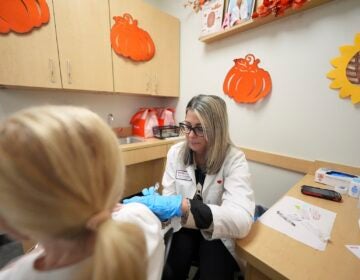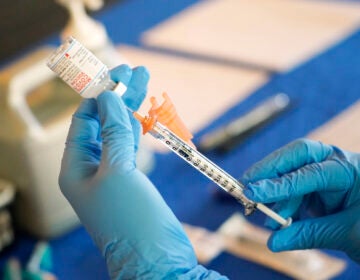Vax Machine takes COVID-19 vaccine into Delaware communities to address racial inequities
A WHYY analysis of Delaware data found that Black and Latino residents are getting vaccinated for the coronavirus at much lower rates than white residents.
Listen 5:00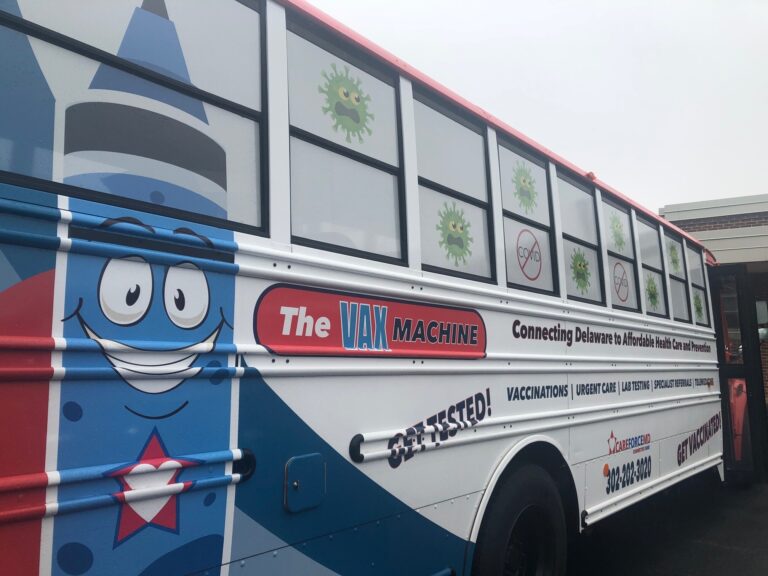
The Vax Machine brought vaccinations to hundreds of senior citizens at Rose Hill Community Center. (Cris Barrish/WHYY)
Ask us about COVID-19: What questions do you have about the coronavirus and vaccines?
Dr. Rick Pescatore fires off a series of questions to each person who sits before him, after they wait in the hallway of the Rose Hill Community Center south of Wilmington.
Are they allergic to anything? Do they take blood thinners? Have they been vaccinated within the last 14 days?
Once his queries are answered to his satisfaction, Pescatore instructs each patient to roll up their sleeve, aims a needle at their arm, injects them with their first dose of the two-shot Pfizer coronavirus vaccine, and directs them to the observation room to be monitored for adverse reactions.
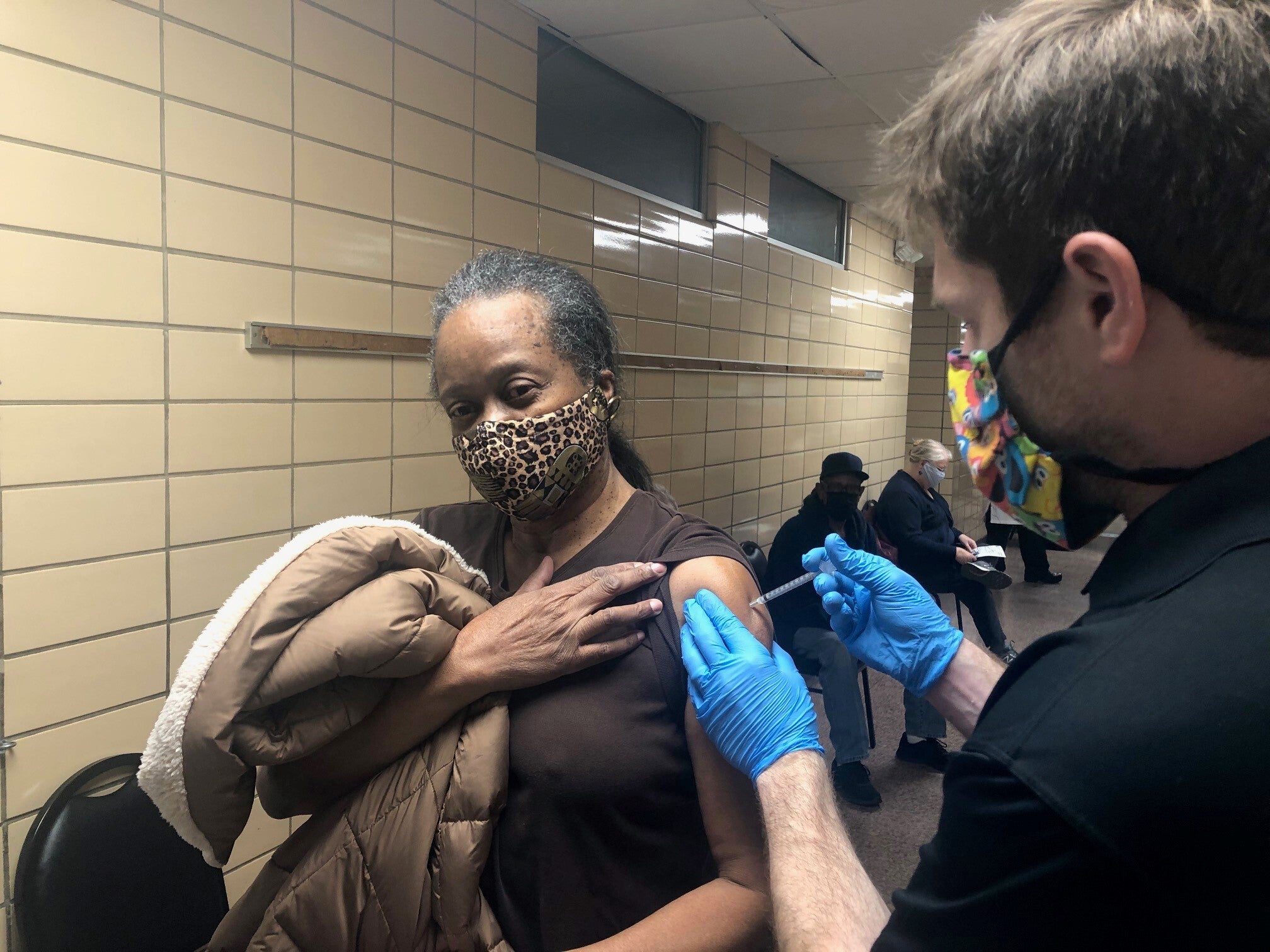
Pescatore, chief physician for the Delaware Division of Public Health, barely has time to pause from administering the shots. That’s because many residents of the predominantly Black, low-income neighborhoods near the Rose Hill center have come to get their COVID-19 shots in a place they know and trust.
The state is cognizant of the reluctance of people in what Pescatore calls “vulnerable communities” to get vaccinated. Officials also realize the residents in many neighborhoods face barriers to care, such as difficulties with transportation, mobility, navigating the state’s registration system and a general distrust of the medical system.

“We got to get out into these communities and we know that vaccine hesitancy is one of the largest things we have to address right now,” Pescatore told WHYY News while waiting for the next patient to be seated. “Individuals seeing vaccinations happening within their community, and people who look and talk and feel just like them, is critically important.”
Pescatore and other public health leaders readily acknowledge that access issues and hesitancy have contributed to Black and Latino Delawareans having been vaccinated at much lower rates than white residents thus far, even though they contract the coronavirus at much higher rates.
Of those whose race has been identified, a WHYY analysis of state population and vaccination data shows that Black Delawareans comprise 22% of the population but only 10% of the vaccinated. Latinos account for 10% of the population but only 3% of the vaccinated. White residents, by contrast, have received 72% of the vaccinations but comprise only 61% of the population, WHYY found.
As Delaware works to vaccinate as many residents as possible from the coronavirus while working with limited supply, addressing racial disparities has become a priority for public health officials and Gov. John Carney. They’ve been touting the mantra that the rollout should be “fast and fair.” To that end, the state has partnered with CarePortMD to take the company’s red, white and blue converted school bus, called the Vax Machine, into underserved communities.
The Rose Hill area was the first destination, and several hundred senior citizens, almost all from surrounding neighborhoods, flocked to the community center to get vaccinated. The event was only for people aged 65 and above, the main target group for Phase 1B of the state’s distribution plan.
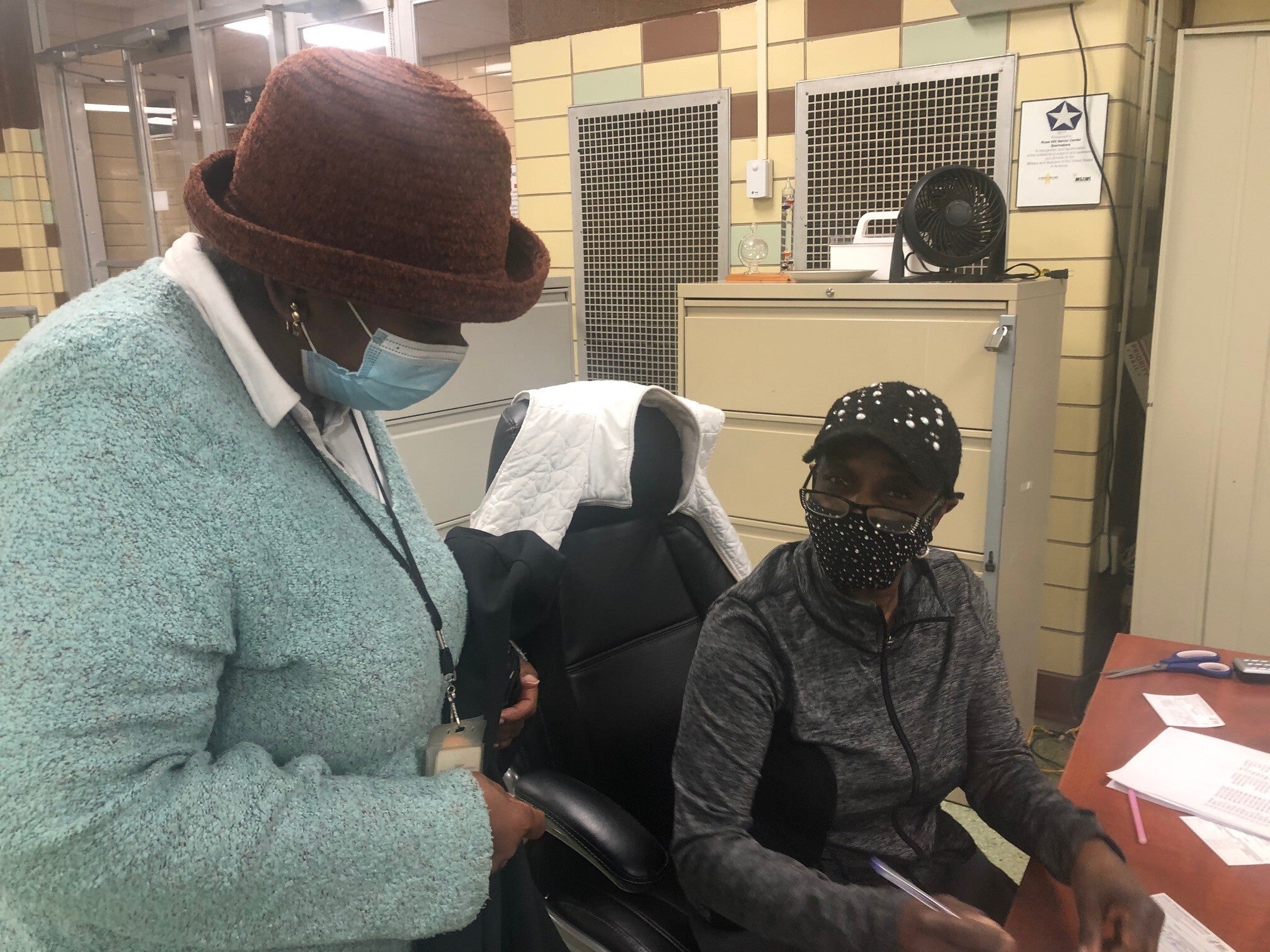
Bonita Lewis told WHYY News she was delighted to get the vaccine so close to home, and that New Castle County police and center leaders made robo-calls to residents informing them shots would be available for senior citizens.
After getting her shot, Lewis was greeted enthusiastically by her friend Sandy Haile. Haile works at Rose Hill’s senior center and checked recipients into the post-shot observation room.
“Hey, Bonita. Got your license, baby?” Haile chortled.
Lewis fished into her wallet and handed over her ID.
Haile asks how the vaccination process went.
“It was a piece of cake,” Lewis responded.
“Come back on the 22nd, right here at the center,’’ Haile tells her. “Love you.”
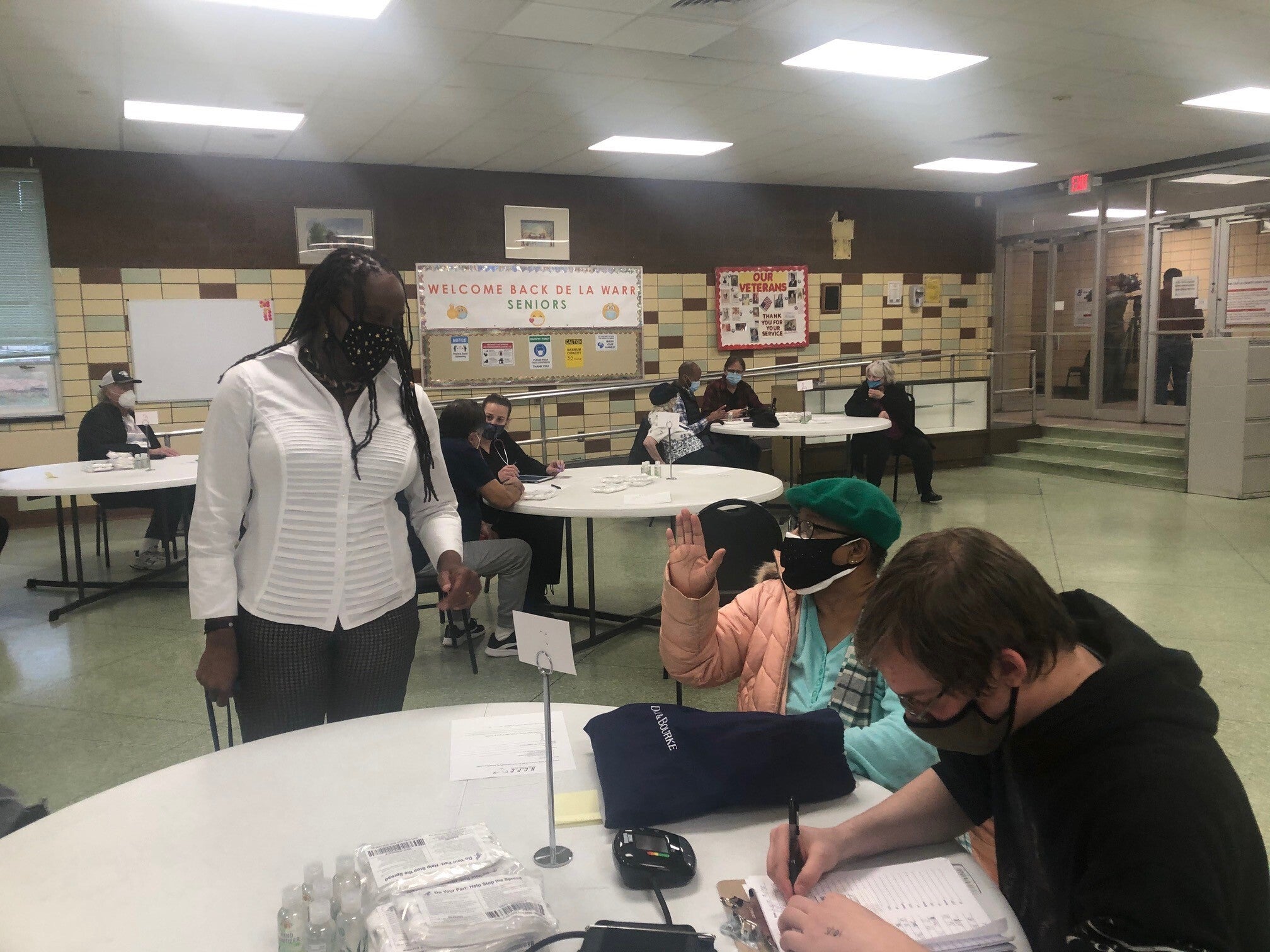
That’s exactly the kind of experience officials want, said Sheila Berkel, the Rose Hill center’s executive director.
“I think the importance of it being here is so key because they’re comfortable here. They know where here is, they can get to here,’’ Berkel said.
Berkel says the center removed barriers such as signing up online and trying to figure out how to navigate that system that isn’t very easy to navigate. “Here, they just have to call, you know, leave their name, their number and their birthdate and then come.”
Lezlie White, a semi-retired cashier, says members of her Jehovah’s Witnesses congregation love the fact that they can get vaccinated at their neighborhood gathering spot.
“Yes, that is a convenience. I think it’s very important,’’ she said. “This place is very accessible. We all have held activities in this community center at one time or another. So it’s a very well-known public space and I feel safe coming here getting the vaccine.”
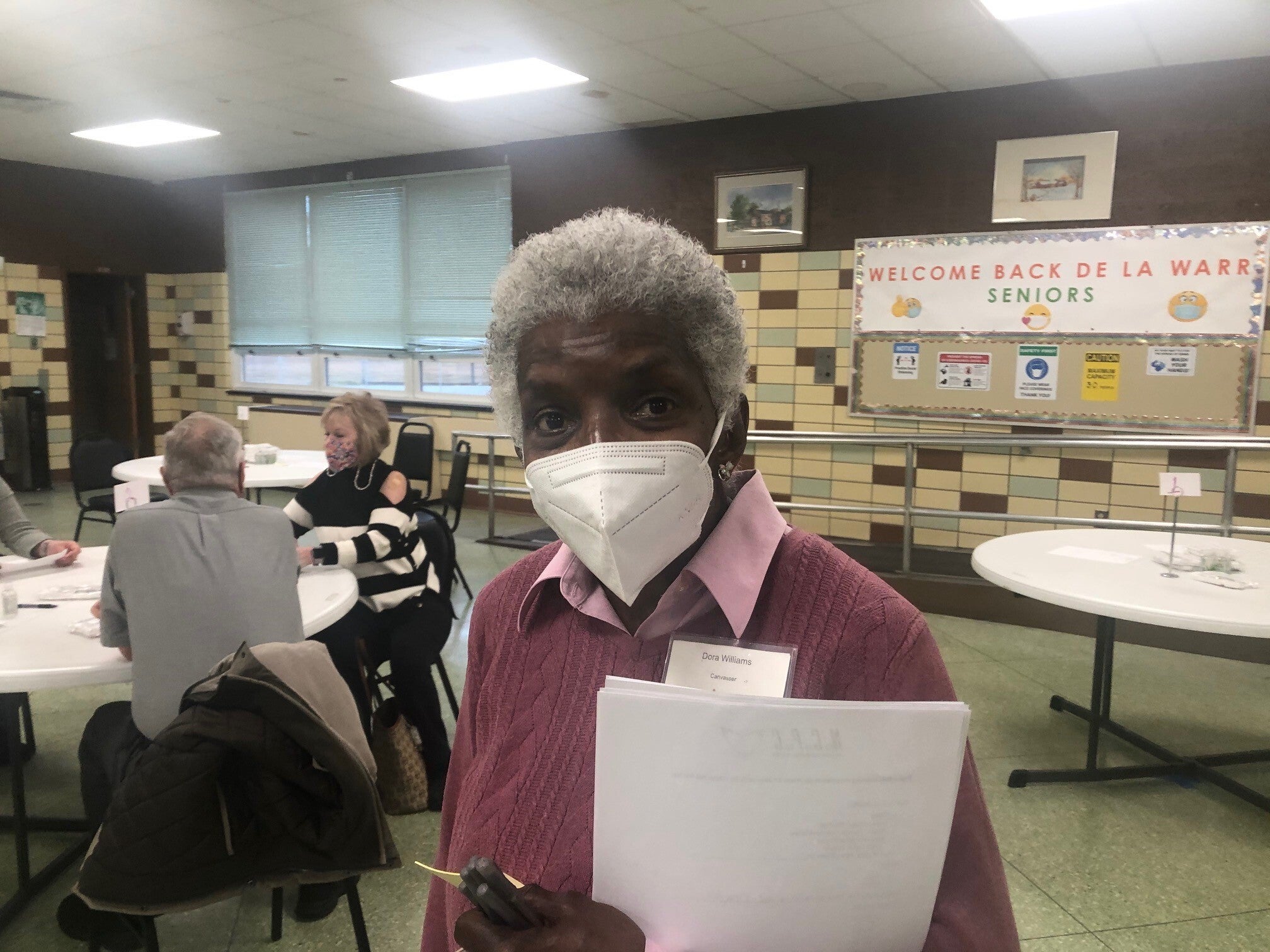
Volunteer Dora Williams says that’s the point. “By putting it here they are saying this is safe for everyone,’’ she said.
Getting vaccinated with neighbors in a familiar setting goes a long way to persuade people who might have been reluctant, Williams said.
“Well, there was at first a reluctance, but I think when things come to the community, and I’m standing side-by-side with someone else who does not look like me and we are together, we are being administered the care together, that builds up a trust,’’ she said.
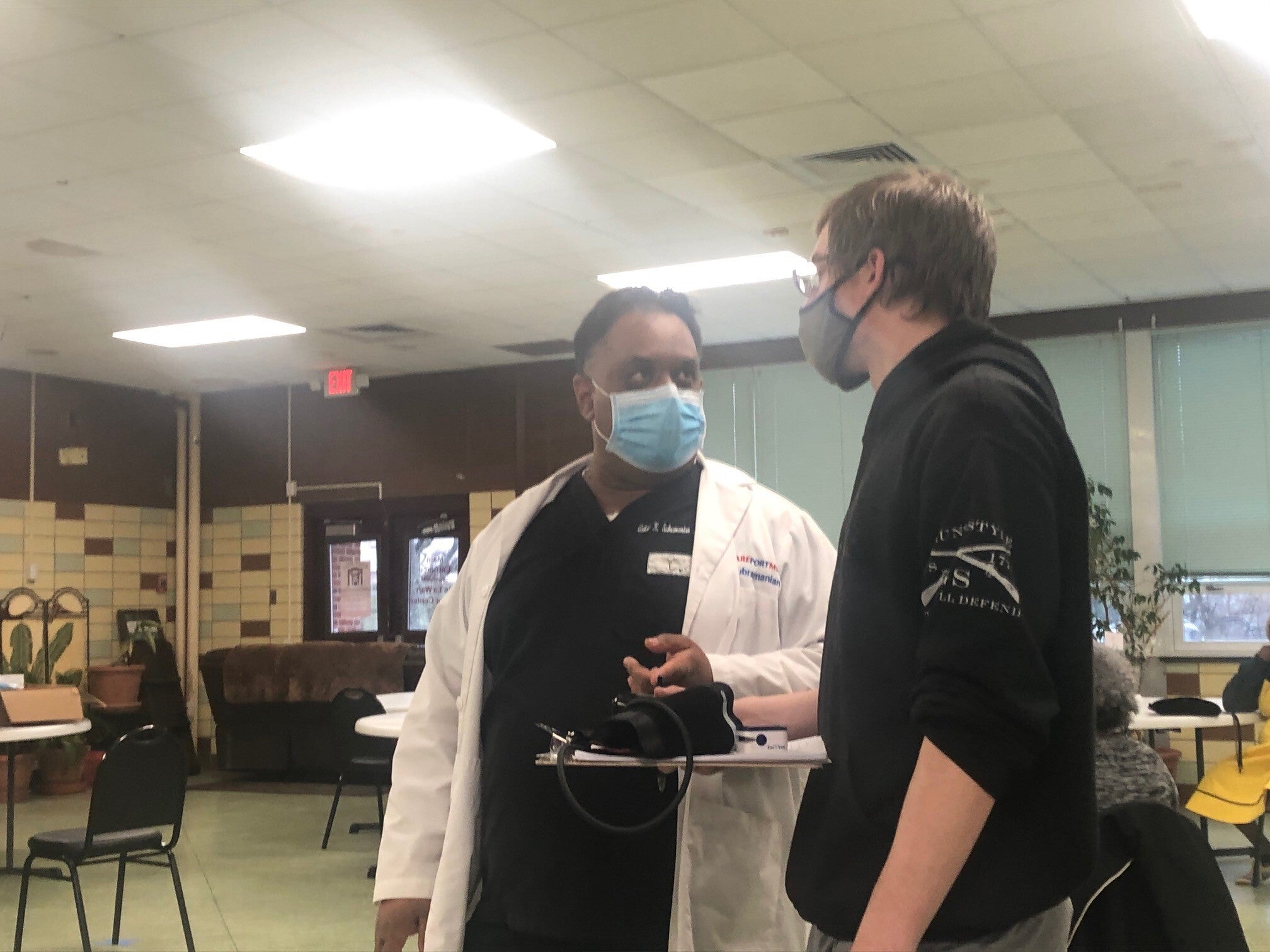
Dr. Ashok Subramanian, CarePortMD’s chief executive officer, took a brief break from his duties in the observation room to speak with WHYY.
“If the bus goes into neighborhoods where the people are, it’s ensuring a more uniform and equitable allocation for these vaccines, because everybody needs them,’’ Subramanian said. “I think it’s absolutely essential and it’s wonderful that this is a priority for the state.”
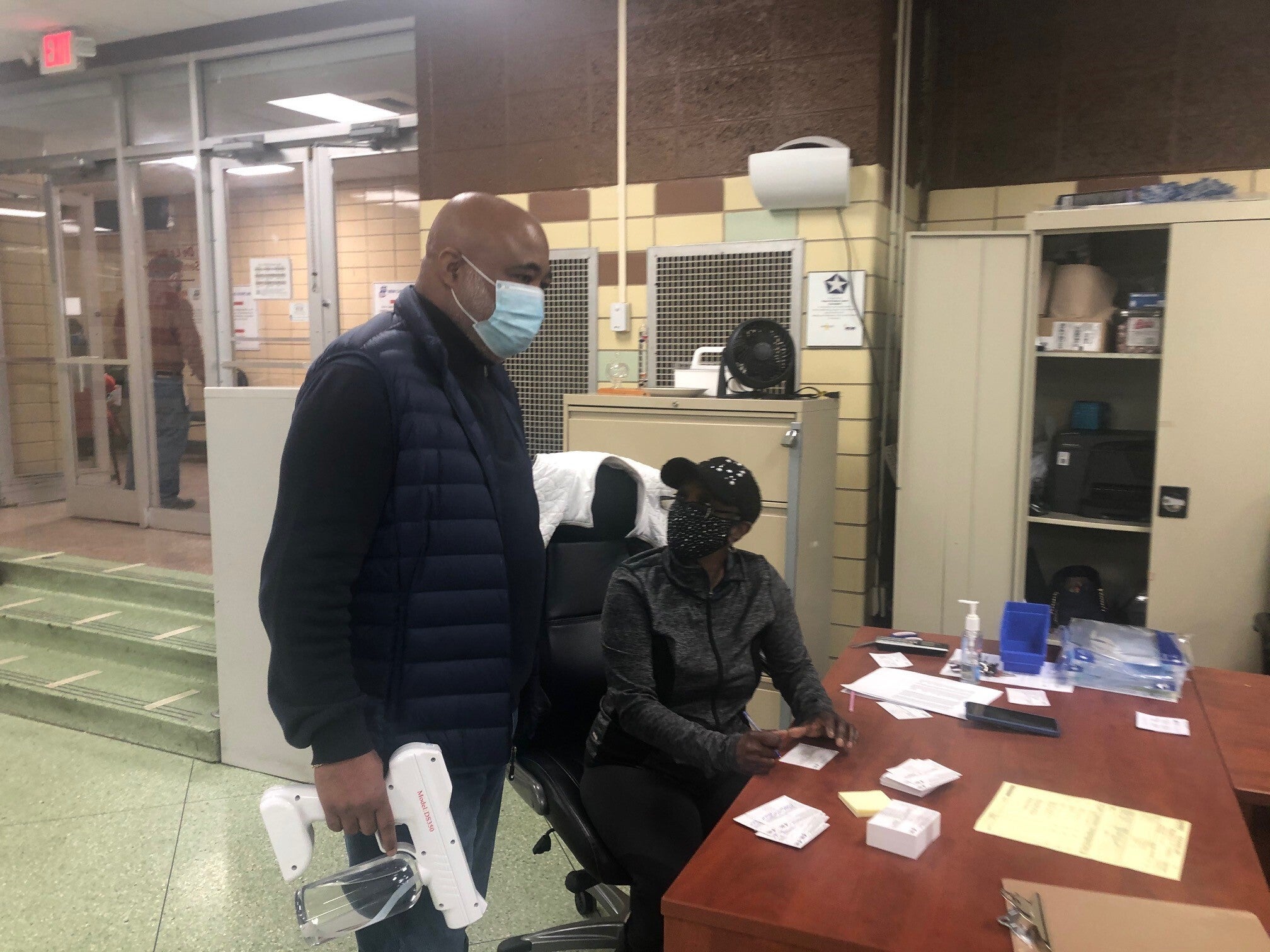
State Rep. Franklin Cooke, who represents the Rose Hill area, touted the partnership as an efficient and compassionate outreach “for those who are disenfranchised in the community and can’t get their shots. It’s boots on the ground.”
Four Vax Machines will eventually be fanning out to other neighborhoods across Delaware that are identified by public health as having the highest need and least access to the vaccine, officials say.

Get daily updates from WHYY News!
WHYY is your source for fact-based, in-depth journalism and information. As a nonprofit organization, we rely on financial support from readers like you. Please give today.




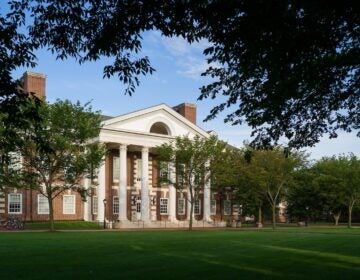
![CoronavirusPandemic_1024x512[1]](https://whyy.org/wp-content/uploads/2020/03/CoronavirusPandemic_1024x5121-300x150.jpg)

